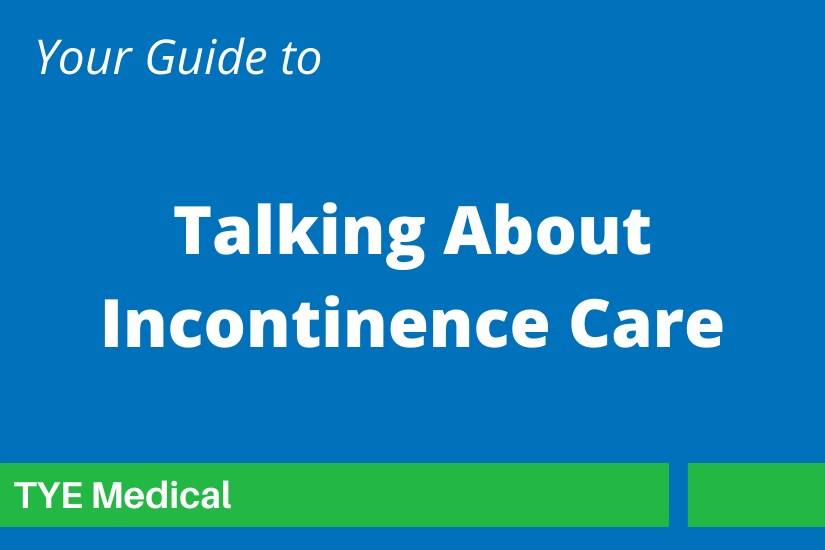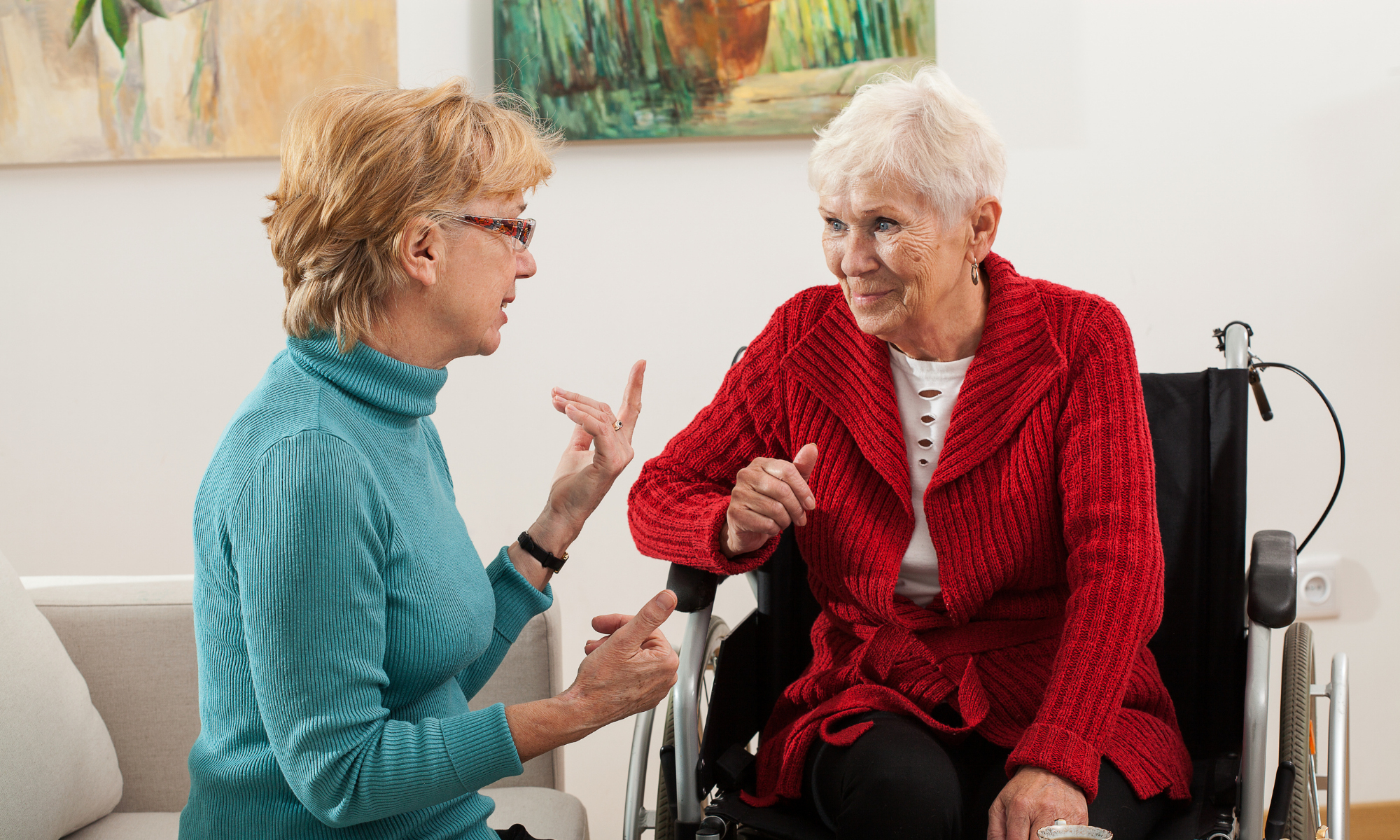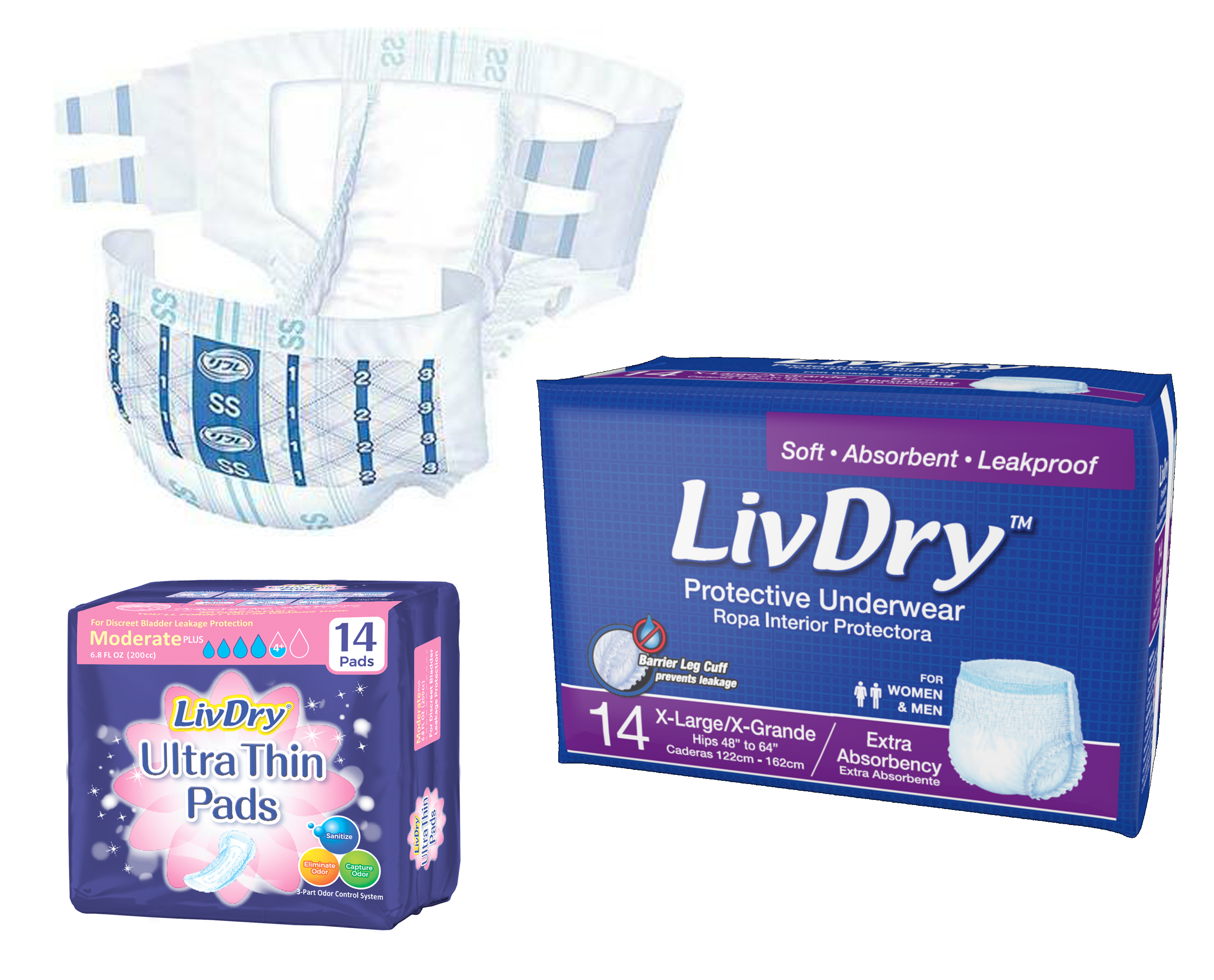How to Discuss Incontinence with a Loved One

It’s a conversation you’ve probably been dreading. You know your loved one needs incontinence care, but you’re not sure how they’ll react to your involvement. How will your concern be received? Will they accept your help? And what is the best way to approach them about this sensitive topic?
These are valid questions, and how you answer them will impact you and your aging family member in a personal way. We’re here to guide you through the process with helpful information sourced from real-life experiences and experts. With a bit of preparation and planning, you can walk your loved one through the necessary treatment plan while offering your support.
Educate Yourself About Incontinence Care

Before beginning the discussion, it’s helpful to learn more about incontinence, its causes, treatments, and care. You’ll find that there are many types and causes of incontinence. And to make the situation more complex, each person experiences the symptoms in different ways. Symptoms that don’t bother one person very much might be a serious difficulty for another.
Do some online research using reputable sources to ensure you’re getting the most current and accurate information. Research concerning incontinence and its link to other illnesses and emotional health is ongoing.
Here are a few excellent articles from TYE Medical to get you started:
- Urinary Incontinence Treatment: Natural Remedies, Medications, Devices, and Procedures You Should Know About
- 10 Bladder Leakage Terms You Should Know (But Probably Don’t)
- 14 Tips for Controlling Your Leaky Bladder
- Functional Incontinence: 11 Tips for Caregivers of Dementia Patients
- 10 Secrets to Buying the Right Incontinence Products
We have many other relevant and useful articles available on our blog that you can check out.
It’s also a good idea to speak with your loved one’s primary care provider or urologist about their incontinence. This can help you understand the specific cause and direct you concerning the particular care they need.
Approach the Issue with Sensitivity

Even though you’re armed with a wealth of information about their condition, it’s important to remember how personal the topic is to your loved one. They’re inevitably going to feel uncomfortable and even embarrassed to discuss a problem that feels so private and uncontrollable. When living with someone with chronic illness, it’s not always easy to approach health-related subjects, especially sensitive ones.
Here are two practical approaches to consider:
A Factual Approach
While you’re still coming to your family member with sensitivity, you set their mind at ease by reminding them that urinary incontinence is a very common condition. Assure them that there are effective ways to manage bladder leaks and that you can help them find the right solutions.
With this approach, you depersonalize the problem by being frank and open. But you never want to come across as being clinical, dehumanizing, or dismissive. It can be a fine line, but the goal is to work with facts and solutions while remembering you’re talking to a person you love.
An Empathetic Approach
You share that you’ve become aware of their struggle with incontinence and take a more emotional approach that prompts them to discuss their symptoms and feelings without judgment. Rather than beginning with the facts, you might share that you don’t know exactly how it feels to be in their position but would like to understand and help in any way you can.
When they’re ready to address their needs and specific solutions, you can start discussing an incontinence care plan. Be sure to involve them as you consider options. Losing control of bladder function can be traumatic for some people, and you want to show them that they have a voice in managing their care.
The Combined Approach
If you’re unsure which method your family member will respond to best, you can blend the approaches. Begin by showing empathy and then move to the factual and solution-oriented discussions more quickly if they respond favorably. You might also find that your loved one responds to the empathy so well that you continue to take that approach as you discuss treatment options and home care.
If you notice your loved one isn’t responding well to the empathy (some prefer to keep their feelings to themselves), you can shift into the factual approach and gently discuss the practical issues at hand with empathy.
Tips for Discussing Incontinence with a Loved One

We’ve provided a few approaches you can take when talking about incontinence, but you’re probably wondering about the nitty-gritty, like what to say and what not to say. Exactly how do you get them to open up to you about the issue?
We’ve compiled several tips to guide you in how to deal with elderly incontinence:
Use Common Terms
Not everyone is familiar with the word “incontinence.” And it sounds more serious than more casual terms like “bladder leaks,” “urine leakage,” or “leaky bladder.” You can ask if they wear pads for bladder leaks or use other protection with an empathetic attitude. Be attentive, and if they’re referring to incontinence in some other way, begin using the language they’re comfortable using.
Don’t Blame Them
Refrain from scolding, taking a firm tone, or showing any body language that indicates blame on their part. If they haven’t been wearing incontinence products, set the issue aside and focus on supporting them in making healthier choices. If you maintain an attitude of respect and understanding, they’re more likely to open up to you and cooperate with incontinence care.
Be Ready with Solutions
As they share about their incontinence symptoms and challenges, negativity can creep in. This can generate depressive and angry feelings that aren’t helpful to either of you. Be ready to steer the conversation in a positive direction once you’ve heard them out and listened empathetically.
Now is the time to offer your support and hope for better outcomes. Based on your information about their specific condition and the needs they’ve shared with you, you can begin talking about treatments and how they can improve their daily lives.
Choose Incontinence Care Products

Even if you’ve discovered a viable long-term solution for your family member, in the interim, they’ll need the right incontinence products. And many older adults with bladder leaks will continue to require incontinence supplies long-term.
Here are some essential products to discuss as part of your loved one’s incontinence care.
Incontinence Pads
These products fit into regular underwear and are best for very light to moderate leaks. If your family member sits or stands most of the day rather than lying down, then this might be a good option.
Try our LivDry Brand Ultra-Thin Pads.
Protective Underwear
This type of incontinence underwear pulls on like regular underwear but offers more comprehensive protection than pads. It’s best for moderate to heavy leaks and is recommended for those who change their own incontinence products and are still fairly active in their daily lives. Unlike adult diapers (briefs), protective underwear is designed to move along with you.
Try our LivDry Protective Underwear.
Adult Diapers (Briefs)
Incontinence briefs have front-fastening tabs and a more customized fit since you can adjust the tabs to the wearer’s waist size. Like protective underwear, they offer moderate to heavy leak protection. But adult diapers are recommended for those with caregivers who assist with changing their incontinence products because the front tabs make changes easier. Generally, briefs offer adequate leak protection for those who are less active and sit or lay down more often throughout the day.
Try our LivDry Brand Premium Briefs.
Other Incontinence Supplies
After you and your loved one make decisions concerning protective underwear, briefs, and incontinence pads, you’ll need to consider other supplies crucial to incontinence care. Here are some other products to assist you in caring for someone with bladder leakage.
Incontinence Bed Pads
They protect furniture, mattresses, and bedding from unexpected leaks. If your loved one waits too long between changes or some other circumstance arises, bed pads are your backup.
Try our McKesson brand bed pads.
Skincare Products for Incontinence
Skincare is critical for those with bladder leaks. Frequent changes, good hygiene, and a barrier cream can help prevent incontinence dermatitis. TYE Medical offers personal wipes with aloe and vitamin E and a rinse-free wash. Both products will clean and moisturize sensitive areas exposed to soiling.
A moisturizing barrier cream is also recommended for those with bladder leaks. It prevents chafing, moisturizes irritated skin, and acts as a barrier between delicate skin and the soiled incontinence pad or underwear.
Try our McKesson brand StayDry Disposable Washcloths, Rinse-Free Perineal and Skin Cleanser, and Formula 2 Skin Care Cream.
Personalize Incontinence Care for You and Your Loved One

Before talking with your loved one about bladder leakage solutions, be prepared with information about their condition and what it’s like to live with incontinence. Choose an approach that best suits your family member and will make them most comfortable. But no matter how you begin the discussion, be sure that you incorporate some degree of empathy as you deal with this sensitive and personal topic.
Before discussing incontinence care options and solutions, review our information and video about our Two-Piece System. Doing so will help you understand how our insert pads with a waterproof backing (Shaped Pads) can be used in combination with our Protective Underwear and Premium Briefs. When used together, you get additional protection, more convenient changes, and cost savings.
Not sure which products will work best for your loved one? Try using our Product Finder Tool.

